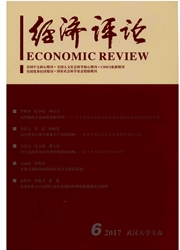

 中文摘要:
中文摘要:
本文构建了一个理论分析框架,将公共支出结构对环境质量的综合效应分解为六个部分:技术效应、消费者偏好效应、经济规模效应、要素替代效应、预算效应和收入管制效应。理论分析发现,如果技术效应、消费者偏好效应收入和管制效应占主导地位,提高非经济性公共支出将改善地区环境质量。进一步基于地市一级的经验数据,文章检验了非经济性公共支出对环境质量的影响效应;实证结果表明,提高非经济性公共支出显著减少了污染排放、改善了环境质量,并且该影响效应具有持续性。一个具体传导机制是:在技术、消费偏好和收入管制效应压力下,企业、政府和社会增加污染治理资金投入,污染治理力度的增强提高了环境质量。为了实现经济与环境的协调发展,政府的支出重点应该转向教育、科技等社会性服务领域,实现降低能源消耗和污染排放的目标。
 英文摘要:
英文摘要:
By constructing a theoretic model, the paper decomposes the environmental effect of fiscal spending composition into six parts: technology effect, consumer preference effect, economic scale effect, substitution effect, budget effect and income regulation effect. It also has found out that if the effect of technology, consumer preference and income regulation is dominant, then increasing the share of non - economic fiscal expenses could improve the environmental quality. Furthermore, it empirically checked the relation assumed above. The results showed that increasing the share of non- economic fiscal expenses could bring the pollution emissions down and improve the cities' environmental quality obviously and permanently. The way that the fiscal composition affecting environment quality is as follows: under the pressure of technology, preference and income regulation effect, the environmental protection input is enhanced, which finally improve the environmental quality. Public spending should turn to the welfare fields just as education and technology. Only in this way can we realize the harmonious goal of both economic development and environment improvement.
 同期刊论文项目
同期刊论文项目
 同项目期刊论文
同项目期刊论文
 期刊信息
期刊信息
